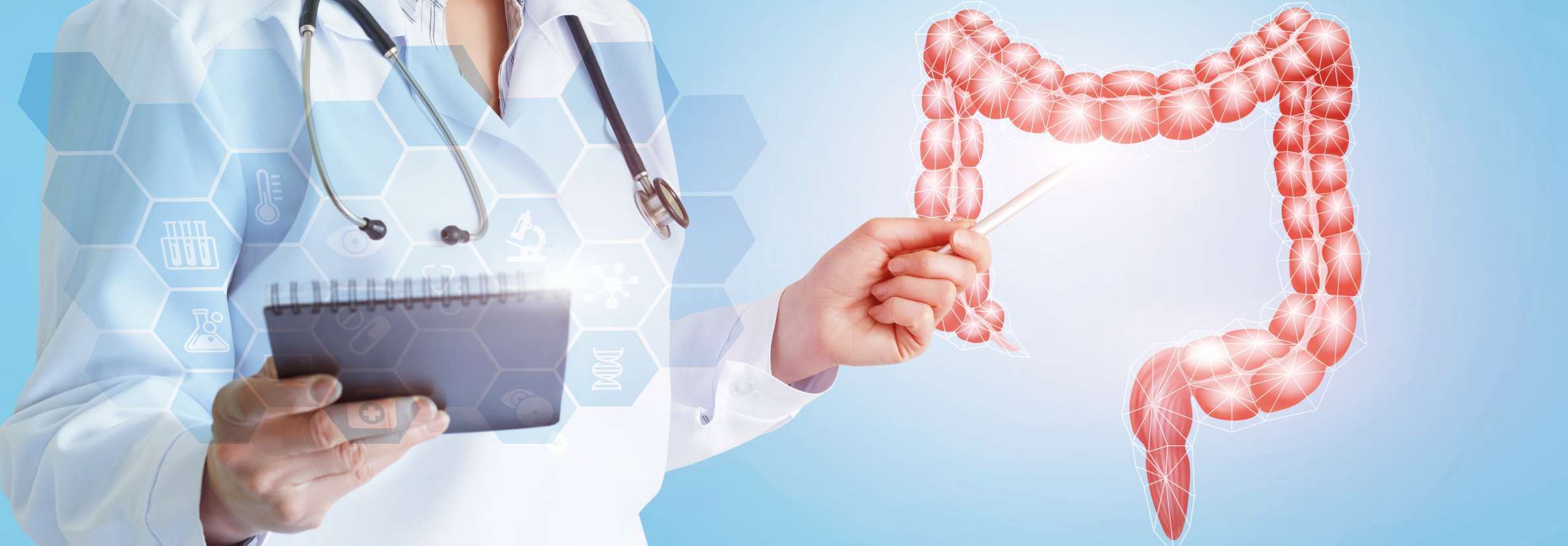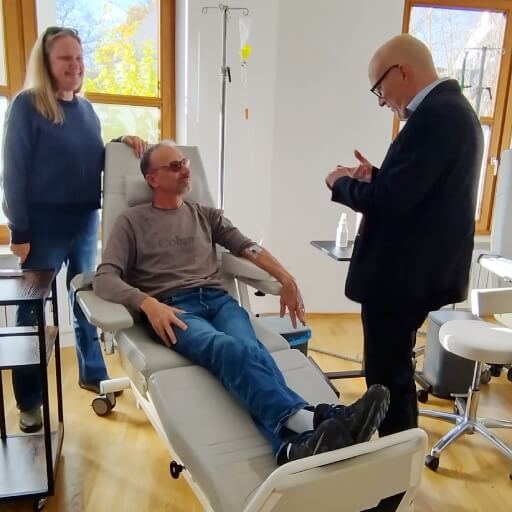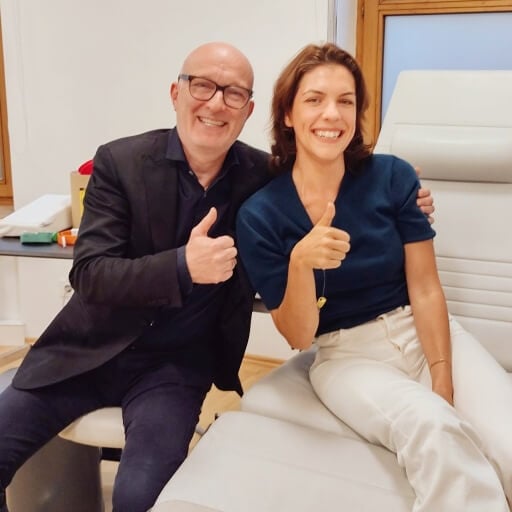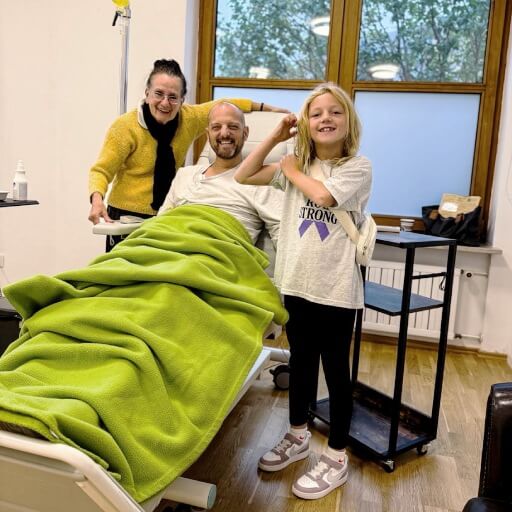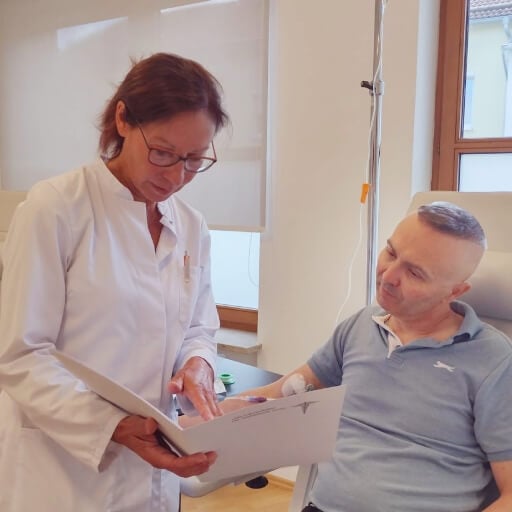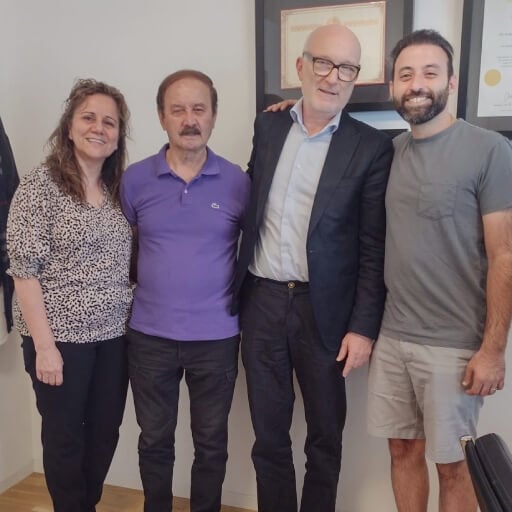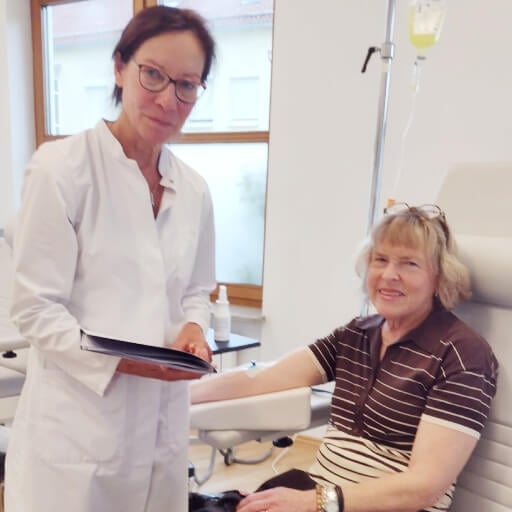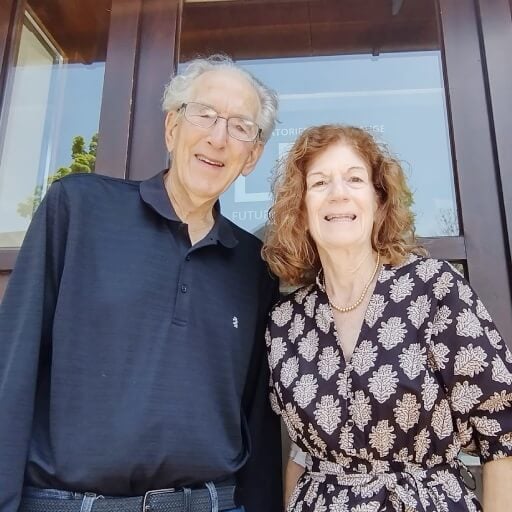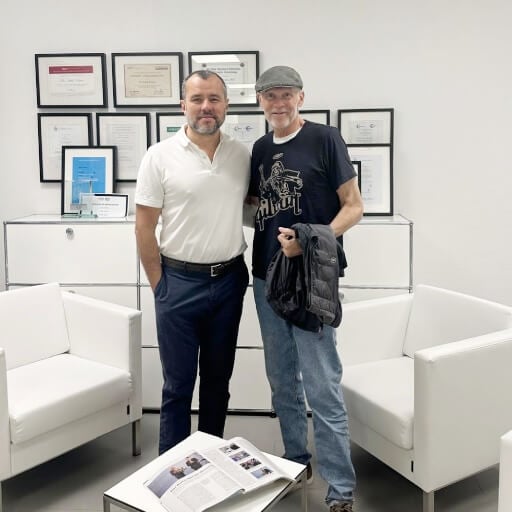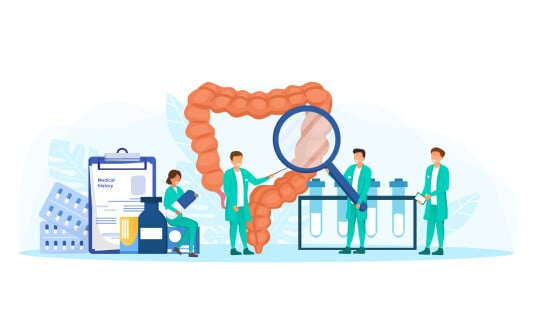Dendritic cell therapy is a form of cancer immunotherapy that utilizes the body's own immune system to fight cancer cells. It is considered a promising approach for patients with various cancers, including colon cancer. Regarding the latter, it is unfortunate, but this disease is one of the most prevalent malignancies worldwide [1, 2]. According to the 2020 World Health Organization data [3], over 1.9 million new cases of colorectal cancer were diagnosed globally that year. This means that colon cancer is the third most common cancer and the second leading cause of cancer-related deaths. To manage the symptoms of this disease, surgery, chemotherapy, and radiation remain important. However, these methods come with limitations. This is why the research community has turned their attention to immunotherapy, as this approach can improve outcomes, even for those with metastatic colon cancer.
Before proceeding with the discussion of how dendritic cell therapy works, we would like to note that the importance of dendritic cells in adaptive immunity was recognized in 2011, when the Nobel Prize in Physiology or Medicine was awarded to Ralph Steinman for his discovery of these immune cells. Dendritic cells are essential: they help identify abnormal structures (e.g., tumor cells) and "teach" the immune system to destroy them [1, 2].
One of the questions that many might ask: where is this treatment available? Currently, Germany is one of the few countries in the world where certified cancer immunotherapy centers offer personalized dendritic cell vaccines customized to each patient's tumor genetics. Studies show that German oncology clinics have reported remission rates exceeding 90% in early-stage colon cancer and around 80% in advanced cases, when dendritic cell therapy is integrated into a multidisciplinary treatment plan. Overall, the application of dendritic cells for colon cancer in Germany offers a unique opportunity for patients abroad to access innovative care.
How Dendritic Cell Therapy Works in Colon Cancer
Dendritic cell therapy is a type of cancer treatment that belongs to the broader category of cancer immunotherapy. Chemotherapy attacks all rapidly dividing cells. In contrast, dendritic cell immunotherapy can train the body's immune system to specifically recognize and eliminate tumor cells while sparing healthy tissue. Simply said, this approach, as mentioned above, can target cancer cells. This can result in fewer side effects and, in many cases, significantly improve long-term outcomes [1, 2].
What Are Dendritic Cells?
Dendritic cells are specialized immune cells that help activate the body's adaptive immune system. They are often referred to as the "officers" of the immune response. The reason is that they are among the first to detect abnormal or foreign substances (e.g., cancer cells) and present these threats to T-lymphocytes (T-cells) for destruction [1, 2].
These cells are capable to capture and process tumor antigens; migrate to lymph nodes; present processed antigens to naïve T-cells; and activate cytotoxic (CD8+) T-cells that directly fight cancer.
This process is known as antigen presentation. Basically, it is the foundation of how dendritic cell vaccines are designed to work [1, 2].
Mechanism of Action in Colon Cancer
When used for colon cancer treatment, dendritic cell therapy works in several steps [1, 2]:
Blood Collection and Immune Cell Isolation. First, approximately 200 ml of the patient's blood is drawn. It is transported under controlled conditions to a certified clean room. Then, the blood undergoes centrifugation to separate its components. As a result of this process, the red blood cells and granulocytes (nonspecific immune cells) are discarded. In turn, the lymphocyte-rich fraction is retained. This fraction contains the precursor cells needed to generate dendritic cells.
Vaccine Preparation and Antigen Loading. In this step, the immune cells are cleaned and cultured in a nutrient-rich medium. Specific growth factors are added to promote the maturation of dendritic cell precursors. From the beginning of this process, autologous tumor antigens are introduced. These antigens serve to "educate" the dendritic cells; they train them to recognize tumor-specific markers such as carcinoembryonic antigen (CEA), mucin 1 (MUC1), Wilms' tumor gene 1 (WT1), and mutated p53 protein.
Dendritic Cell Maturation and Quality Control. Over the course of 7 days, the dendritic cells mature in the incubator. When under a microscope, one can notice that these cells develop distinctive hair-like extensions that allow them to be characterized as mature antigen-presenting cells. The vaccine undergoes strict quality checks before it can be used. The aim is to assess surface markers, cell count, and viability using flow cytometry.
Immune Activation and Vaccination. Lastly, the mature dendritic cells are harvested and cleaned. After that, they are placed into sterile syringes. Then, they are administered via subcutaneous injection, typically in the groin region. Following immunization, the patient receives a high-dose vitamin infusion and is discharged the same day. These dendritic cells travel to the lymph nodes, where they present tumor antigens to T-cells, activating cytotoxic (CD8+) T-cells and memory T-cells for long-term immune surveillance.
According to research, dendritic cell-based vaccines significantly increase CD8+ T-cell activity in colorectal cancer patients, correlating with slowed tumor progression and improved survival [1, 2].
Impact on the Colon Cancer Microenvironment
As the research evidence reports, tumors often create an immunosuppressive microenvironment that helps them escape immune detection. This environment disables native dendritic cells; attracts regulatory T-cells that suppress immune responses; and promotes blood vessel growth (angiogenesis) to nourish tumor cells.
However, dendritic cell immunotherapy helps disrupt this environment by doing the following: it reintroduces healthy, immunocompetent dendritic cells; enhances immune surveillance; and supports anti-angiogenic effects.
In fact, some studies suggest that dendritic cell therapy may help destroy tumor blood vessels, starving the cancer of oxygen and nutrients [1, 2]. Moreover, when combined with chemotherapy, dendritic cells benefit from the "danger signals" released by dying tumor cells. This makes it easier for the immune system to recognize residual cancer [1, 2].
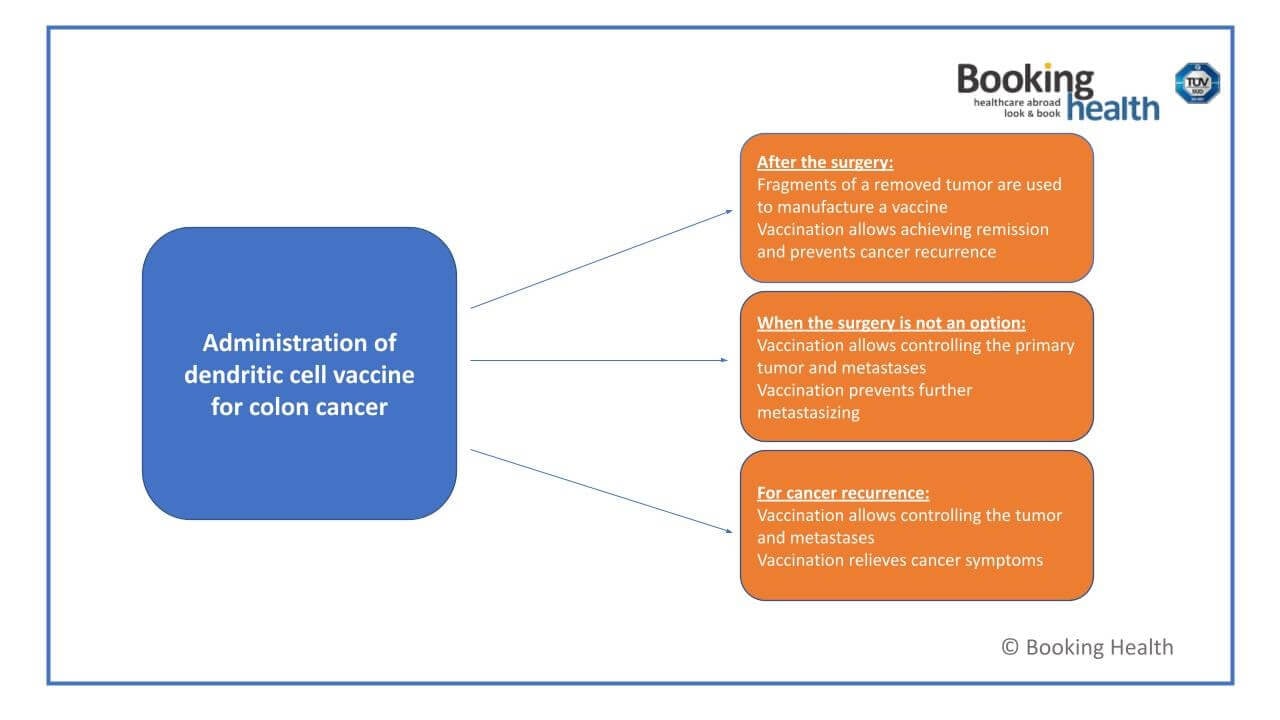
Who Is a Candidate for Dendritic Cell Vaccination in Colon Cancer?
Dendritic cell vaccination is a therapeutic option for various categories of colon cancer patients. In particular, it is considered beneficial when standard treatments are insufficient, unavailable, or ineffective. Eligibility for colon cancer vaccine is determined based on clinical stage and tumor characteristics, as well as individual treatment goals [1, 2].
Ideal candidates for dendritic cell vaccination are:
Patients After Cytoreductive Surgery. In general, the most favorable time to initiate dendritic cell vaccination is after cytoreductive surgery. This is typically done in patients with localized disease or isolated liver metastases, when it is feasible to achieve complete or near-complete tumor resection.
The main goal is to remove bulky disease surgically. Then, the dendritic cell vaccine allows to target residual micrometastases. In this regard, research found that patients who underwent dendritic cell immunotherapy following tumor debulking had significantly improved recurrence-free survival compared to those who received surgery alone.
Patients with Metastatic Colon Cancer and Liver Involvement. As the available evidence demonstrates, up to 20% of colon cancer patients present with unresectable liver metastases at diagnosis. In these cases, surgery may not be possible. Yet, dendritic cell vaccination remains an option.
Even without tumor resection, the immune system can be trained to recognize and attack tumor-associated antigens expressed by metastatic cells. The surface of colon cancer tissues contains highly immunogenic molecules such as CEA, WT1, MUC1, and mutated p53 protein. As mentioned above, these markers are not found in healthy tissue, which is why they are ideal targets for personalized vaccination protocols.
Patients Not Eligible for Surgery or Chemotherapy. Some patients may be ineligible for standard treatments due to age, comorbidities, or poor general condition. However, dendritic cell colon cancer therapy can be used to treat these individuals. For them, it can offer a non-toxic and immunologically active alternative.
As previously noted, dendritic cell therapy avoids the harsh side effects of chemotherapy. As such, it may improve quality of life and slow tumor progression without the need for hospitalization.
In addition, dendritic cell therapy for colon cancer can also preserve immune function. Therefore, it allows for the possibility of future combination therapies if the patient's condition improves.
Patients with Recurrent Disease. In modern colon cancer treatment, recurrence prevention is a central goal, especially after apparent remission. The good news is: dendritic cell vaccination can be effective in managing relapsed colorectal cancer, particularly when other therapies have failed.
As discussed in literature, recurrent disease often develops due to immune evasion by cancer cells. However, dendritic cell therapy helps reprogram the immune system to detect and eliminate recurring malignant cells.
Therefore, patients who relapse after radiation therapy, chemotherapy, or targeted treatments may benefit from vaccination to extend survival and maintain symptom control.
Genetic Profiling and Biomarkers
Modern oncology uses biomarker analysis to identify suitable candidates for immunotherapy. In dendritic cell vaccination, tumor tissue or tumor cells in the blood are analyzed to detect neoantigens. These are new mutations that arise in cancer and are recognizable by the immune system.
Specifically, liquid biopsy or tumor biopsy provides DNA or RNA used in vaccine formulation. The presence of mismatch repair deficiency (dMMR) or microsatellite instability-high (MSI-H) status may enhance the effectiveness of dendritic cell-based immunotherapy due to the increased antigenic load.
Dendritic Cell Therapy Protocol in Colon Cancer in Germany
Germany is internationally recognized for its advancements in cancer immunotherapy, particularly in the development and administration of dendritic cell vaccines. The treatment with dendritic cells follows a standardized yet highly personalized two-step protocol, conducted in certified immunotherapy centers that meet the highest safety and quality standards.
This therapeutic process is carried out in a comfortable outpatient setting, making it accessible and minimally disruptive to a patient's daily life. The entire procedure typically spans a few weeks, with vaccine development taking place in advanced laboratory conditions using components derived from the patient's own body, as previously noted [1, 2].
Step 1: Preparation and Vaccine Development
This phase focuses on collecting the biological materials required to produce a personalized dendritic cell vaccine to target cancer cells.
- Blood Collection
As described earlier, the patient undergoes a simple blood draw of approximately 150-200 ml, a well-tolerated outpatient procedure similar to a standard blood donation. The blood is transported under stable conditions to a certified cleanroom laboratory, where it undergoes centrifugation to separate the components.
- As explained in the mechanism of action, the red blood cells and granulocytes (non-specific immune cells) are discarded, while the lymphocyte-rich fraction – containing precursor cells that develop into dendritic cells – is retained. These immune cells are then cultivated in a nutrient-rich medium with interleukins and growth factors.
- Over the course of 3-5 days, the monocytes mature into dendritic cells capable of presenting tumor antigens to T-cells.
- Tumor Antigen Identification
- To personalize the vaccine, tumor-associated antigens must be identified. In many certified German immunotherapy clinics, these antigens are derived directly from the patient's own blood plasma, which contains tumor-specific markers suitable for vaccine development.
- In some clinical settings – particularly when a tumor was previously removed – stored tumor tissue or circulating tumor DNA may also be analyzed to identify additional tumor antigens such as CEA, MUC1, WT1, and mutated p53 protein. These markers help "train" dendritic cells to recognize and target cancer cells more precisely.
- Antigen Loading and Maturation
- In the laboratory, the maturing dendritic cells are exposed to tumor-specific antigens – whether derived from the patient's plasma, tumor tissue, or synthetic peptides. This step effectively "teaches" the dendritic cells to recognize cancer cells. The cells are monitored microscopically during the 7-day maturation process to ensure proper growth and development.
- Before being harvested, the dendritic cells undergo quality control testing to evaluate surface markers, viability, and cell count using flow cytometry. Once approved, the final vaccine – containing millions of mature, trained dendritic cells – is prepared for administration.
Step 2: Vaccine Administration and Cryopreservation
This step involves the actual delivery of the dendritic cell vaccines and logistical planning for subsequent treatments.
- Subcutaneous Vaccination
- The vaccine is administered via a subcutaneous injection, typically in the inguinal region (groin) or near the umbilicus (navel) once any surgical wounds have healed. The procedure is brief and painless, usually completed within an hour, and patients can return home the same day. Mild side effects, such as low-grade fever or localized swelling, are rare and temporary.
- Cryopreservation of Vaccines
- To avoid repeated leukapheresis or blood collection, excess vaccine doses are cryopreserved for future injections. These preserved dendritic cells maintain full functionality due to strict EU-GMP laboratory protocols. Patients may receive 3 to 6 injections over several months, depending on the clinical response and disease progression, although in some cases, a single vaccination may be sufficient.
Logistics and Support of Colon Cancer Patients
- Treatment with dendritic cells of cancer in Germany is usually completed within 4-6 weeks from initial consultation.
- Ongoing communication with the clinic ensures close monitoring and flexibility in scheduling.
- Patients traveling for cancer treatment in Germany can plan brief, comfortable visits with minimal disruption.
This protocol allows German clinics to deliver advanced care while prioritizing patient convenience, safety, and personalized medicine.
Combined Approaches for Colon Cancer Treatment: Immuno-Chemo Protocols
We hope our readers now see that dendritic cell therapy is a great strategy to incorporate in colon cancer treatment. However, we must note that its full potential is often realized when combined with conventional modalities (e.g., chemotherapy, radiation therapy, and immune checkpoint inhibitors) [1, 2]. These multimodal combination therapies are referred to as immuno-chemo protocols. They represent a new standard in personalized cancer treatment, particularly in advanced or recurrent disease.
Why Combine Dendritic Cell Therapy with Other Colon Cancer Treatments?
Cancer cells can alter the surrounding tissue to form an immunosuppressive tumor microenvironment. Main features of this environment include:
- Dysfunctional immune cells, including dendritic cells and T-cells.
- Abundant regulatory T-cells that suppress immune responses.
- Overexpression of PD-L1, a protein that inhibits T-cell activity.
- Increased secretion of cytokines that promote tumor progression.
By combining dendritic cell therapy with chemotherapy or checkpoint inhibitors, doctors can break this protective barrier. They can reactivate the immune system and achieve better tumor control.
Clinical Use in Germany
German oncology clinics use dendritic cell-based immunotherapy in conjunction with:
Chemotherapy. These regimens induce immunogenic cell death, releasing tumor antigens. Then, the released antigens are "captured" by administered dendritic cells, enhancing T-cell activation.
For example, a study showed that patients with stage IV colon cancer who received dendritic cell vaccines combined with chemotherapy drugs had longer overall survival and disease-free survival than those on chemotherapy alone [4].
Immune Checkpoint Inhibitors. These drugs restore the function of exhausted T-cells. When paired with dendritic cell vaccination, they amplify anti-tumor activity. They are considered especially effective in tumors with MSI-H (microsatellite instability-high) or dMMR (deficient mismatch repair).
Radiation Therapy. Radiation damages cancer cells and releases tumor antigens. Dendritic cell therapy then "trains" the immune system to recognize and attack those same antigens. This approach can be used in patients with localized rectal cancer before surgery.
Advantages of Combination Therapy in Colon Cancer
Patients who receive combination therapy benefit from the positive effects of multiple approaches while minimizing toxicity. Some of the advantages include:
- Stronger immune activation against tumor cells.
- Lower doses of chemotherapy needed, reducing side effects.
- Delayed tumor progression and longer survival.
- Improved quality of life, especially in advanced stages.
- Better recurrence prevention, even in high-risk cases.
In this connection, a study concluded that combination immuno-chemo protocols significantly enhance overall survival in colorectal cancer patients, especially when introduced early in metastatic disease [5].
A Personalized Colon Cancer Treatment Strategy
In view of the information provided above, we want to add that, when receiving treatment for cancer in Germany, patients should understand that combination therapy is never one-size-fits-all. Oncologists always evaluate each case individually to determine the best mix of treatment approaches.
Effectiveness and Outcomes of Dendritic Cell Therapy for Colon Cancer
The success of dendritic cell therapy in the treatment of colon cancer has been demonstrated in several studies in Germany and worldwide.
Remission, Disease-Free, and Overall Survival in Colon Cancer
A meta-analysis of seven clinical trials (533 colorectal cancer patients) showed that the combination of dendritic cell-cytokine-induced killer (DC-CIK) immunotherapy with chemotherapy significantly improved:
- 2-year overall survival: 76% vs. 69% with chemotherapy alone (P = 0.009).
- 3-year overall survival: 80% vs. 61% (P = 0.002).
- 1-year disease-free survival: 86% vs. 63% (P < 0.0001).
This means that dendritic cell therapy can positively affect both recurrence prevention and long-term survival [6].
Progression-Free Survival and Immune Activation in Colon Cancer
In this regard, studies of DC-CIK therapy have reported significant increases in CD4+ T-cell counts, which reflects enhanced immune system activation [7]. In smaller trials involving dendritic cell vaccines targeting WT1 antigens, immunity persisted for two years. This correlates with prolonged disease-free survival and overall survival [8].
Recurrence Prevention and Quality of Life in Colon Cancer
As previously noted, one of the most valuable aspects of dendritic cell therapy is its potential for recurrence prevention. By inducing long-term immune memory, dendritic cells continue to recognize and destroy cancer cells even after apparent remission [1, 2]. In addition to clinical outcomes, dendritic cell immunotherapy contributes to a higher quality of life due to its favorable safety profile:
For example, fifth-year follow-up studies indicate approximately 71% of vaccinated patients remained recurrence-free at nearly 5 years [9]. This aligns with the meta-analysis findings: 1-, 2-, and 3-year disease-free survival improved from 63% → 86%, 40% → 60%, and 36% → 50%, respectively, demonstrating substantial recurrence prevention [6].
Immune Cells Matter
The success of dendritic cell immunotherapy depends on the effective activation of immune cells:
- CD4+ and CD8+ T-lymphocytes are boosted significantly, enhancing tumor surveillance and control [1, 2].
- Elevated dendritic cell infiltration within tumors correlates with improved progression-free and overall survival [6-9].
This evidence confirms the critical role of immune cells and dendritic cell therapy in achieving positive outcomes for colon cancer patients, especially when combined with chemotherapy.
Prof. Dr. Med. Frank Gansauge on Dendritic Cell Therapy for Colon Cancer
The effectiveness of dendritic cell therapy in colon cancer treatment is not just supported by clinical data. Leading professionals in the field also promote it. In this article, we want to introduce our readers to Professor Frank Gansauge. He is a German surgeon and immunologist with over 22 years of experience in the development and application of dendritic cell vaccines.
Professor Gansauge is the founder of LDG Laboratories in Germany. He has personally overseen more than 2,500 dendritic cell therapy protocols. His innovative LANEX-DC® approach has become one of the most trusted methods to personalized cancer treatment abroad. It is used in certified immunotherapy centers for patients with colon cancer, especially in advanced and metastatic cases.
To understand how Germany integrates immunotherapy into comprehensive oncology programs, we recommend watching Professor Gansauge's interview:
Treatment with Dendritic Cells of Colon Cancer in Germany
As many know, Germany is considered one of the world's leading destinations for cancer treatment abroad. In particular, this country may be suitable for patients seeking dendritic cell vaccines as part of a personalized care plan.
The total cost of dendritic cell therapy for colon cancer patients in Germany typically ranges between €20,000 and €38,000. However, the final amount may depend on the complexity of the treatment plan, the number of injections required, and whether the therapy is combined with chemotherapy or other modalities.
What Does the Cost Cover?
- Collection of monocytes.
- Tumor material analysis (or synthetic peptide generation).
- Production of personalized dendritic cell vaccines.
- Subcutaneous vaccine administration.
- Cryopreservation of excess dendritic cells for future use.
- Outpatient care, nursing, and medical consultations.
The inclusion of cryopreservation significantly reduces long-term costs. This is because it eliminates the need for repeated blood collection and vaccine production for booster doses. Stored dendritic cells in Germany remain viable for months or even years under controlled conditions.
A Medical Journey – Every Step of the Way with Booking Health
Dealing with a serious diagnosis like colon cancer can feel overwhelming. You may already be exhausted from numerous consultations, conflicting medical opinions, or aggressive treatments with limited results. In such a situation, it is easy to fall back on standard protocols – despite their side effects – rather than explore innovative options like dendritic cell therapy.
At Booking Health, we help you make an informed decision. As a global leader in treatment organization for international patients, we specialize in arranging personalized cancer treatment abroad, with a strong focus on advanced immunotherapy solutions offered by the best German oncology clinics.
For over 12 years, Booking Health services have connected patients from around the world with Germany's best hospitals – many of which are certified immunotherapy centers. Whether you are seeking care for metastatic colon cancer, preparing for dendritic cell vaccination, or planning an entire treatment program from surgery to follow-up, we are here to guide you.
What you can expect from Booking Health:
- In-depth review and analysis of your medical records
- Personalized colon cancer treatment program based on your diagnosis and preferences
- Selection of a certified clinic in Germany with high success rates in dendritic cell therapy
- Communication with leading specialists before arrival
- Translation of all medical documentation and coordination with clinics
- Help with visa, travel, and accommodation arrangements
- A dedicated medical coordinator and interpreter providing 24/7 support
- Ongoing assistance during your hospital stay
- Follow-up care and communication with your German doctors after your return home
- Transparent pricing with no hidden fees – often up to 50% lower than standard international rates
Your health deserves the best. Entrust your care to experienced professionals who can deliver results. Contact Booking Health today to explore innovative options for treating cancer in Germany and take the first step toward recovery.
Personalized Dendritic Cell Treatment: Experience with Booking Health
Frequently Asked Questions About Dendritic Cell-Based Immunotherapy In Colon Cancer
Send request for treatmentThe treatment creates a personalized vaccine from the patient's tumor cells and immune cells. This innovative therapy trains the immune system to recognize and fight cancer while complementing other treatments.
Dendritic cell therapy costs between 20,000 and 38,000 euros, varying based on additional treatments and individual needs. The price covers the complete treatment program from consultation to vaccine administration.
German clinics offer this Nobel Prize-winning treatment with minimal side effects, combining immunotherapy with traditional approaches. Patients receive care from experienced medical teams in state-certified facilities with proven success rates.
Dendritic cell therapy for colon cancer is a form of immunotherapy that uses a patient's own dendritic cells to train the immune system to recognize and attack colon cancer cells. These specialized immune cells are extracted and exposed to tumor antigens in a lab. Then, they are reintroduced into the body to activate a targeted immune response against the cancer.
Colon cancer patients may be eligible for dendritic cell therapy at various stages of treatment. In particular, it may be beneficial for those with metastatic colon cancer, recurrence after conventional therapies, or who are unable to tolerate chemotherapy. It is also used for recurrence prevention after tumor resection, especially in cases with a high risk of relapse.
Clinical studies show that dendritic cell therapy for colon cancer can lead to improved survival, particularly in combination with other therapies. It activates immune cells that target and destroy tumor tissue. This approach also delays tumor progression and reduces recurrence rates.
Several certified immunotherapy centers offer advanced colon cancer treatment with dendritic cells in Germany. These specialized clinics have the infrastructure to develop personalized vaccines and integrate them into comprehensive care programs.
Benefits of dendritic cell treatment for colon cancer include low toxicity and significant recurrence prevention by training the immune system to recognize residual cancer cells. It can also improve quality of life and support long-term immune surveillance via a naturally activated immune system.
Yes, dendritic cell therapy for colon cancer is often part of combination therapy. Specifically, immuno-chemo protocols integrate dendritic cells with chemotherapy, radiation, or checkpoint inhibitors to enhance immune cell activation and improve treatment outcomes.
The Booking Health service simplifies treatment organization for patients seeking cancer treatment abroad. Their experts help select one of the best German oncology clinics for your case and handle all arrangements. By using this company's services, patients benefit from access to the leading German specialists and continuous support throughout the entire treatment process.
Choose treatment abroad and you will for sure get the best results!
Authors:
This article was edited by medical experts, board-certified doctors Dr. Nadezhda Ivanisova, and Dr. Bohdan Mykhalniuk. For the treatment of the conditions referred to in the article, you must consult a doctor; the information in the article is not intended for self-medication!
Our editorial policy, which details our commitment to accuracy and transparency, is available here. Click this link to review our policies.
Sources:
[1] World Journal of Gastroenterology. Dendritic Cell-Based Cancer Immunotherapy for Colorectal Cancer. https://pmc.ncbi.nlm.nih.gov/articles/PMC4853685/
[2] Pharmacological Research. Dendritic Cell Vaccine Therapy for Colorectal Cancer. https://pmc.ncbi.nlm.nih.gov/articles/PMC7867624/
[3] World Health Organization. Colorectal Cancer. https://www.who.int/news-room/fact-sheets/detail/colorectal-cancer
[4] Cancer Management and Research. Chemotherapy Combined with Dendritic Cell Vaccine and Cytokine-Induced Killer Cells in the Treatment of Colorectal Carcinoma: A Meta-Analysis. https://pmc.ncbi.nlm.nih.gov/articles/PMC6225919/
[5] International Journal of Colorectal Disease. Advancements in Immunotherapy for Colorectal Cancer treatment: a Comprehensive Review of Strategies, Challenges, and Future Prospective. https://pmc.ncbi.nlm.nih.gov/articles/PMC11682016/
[6] World Journal of Gastroenterology. Combination of Chemotherapy and Immunotherapy for Colon Cancer in China: A Meta-Analysis. https://pmc.ncbi.nlm.nih.gov/articles/PMC3921535/
[7] PLoS One. Autologous Tumor Lysate-Pulsed Dendritic Cell Immunotherapy with Cytokine-Induced Killer Cells Improves Survival in Gastric and Colorectal Cancer Patients. https://journals.plos.org/plosone/article?id=10.1371%2Fjournal.pone.0093886&
[8] Vaccines. Dendritic Cell-Based Adjuvant Vaccination Targeting Wilms' Tumor 1 in Patients with Advanced Colorectal Cancer. https://www.mdpi.com/2076-393X/3/4/1004
[9] Experimental Hematology & Oncology. Research Progress on Dendritic Cell Vaccines in Cancer Immunotherapy. https://ehoonline.biomedcentral.com/articles/10.1186/s40164-022-00257-2
Read:
Treatment of stage 4 colon cancer in Germany
Top 10 Leading Oncology Hospitals for Cancer Treatment in Germany
Article menu:
- How Dendritic Cell Therapy Works in Colon Cancer
- Who Is a Candidate for Dendritic Cell Vaccination in Colon Cancer?
- Dendritic Cell Therapy Protocol in Colon Cancer in Germany
- Combined Approaches for Colon Cancer Treatment: Immuno-Chemo Protocols
- Effectiveness and Outcomes of Dendritic Cell Therapy for Colon Cancer
- Prof. Dr. Med. Frank Gansauge on Dendritic Cell Therapy for Colon Cancer
- Treatment with Dendritic Cells of Colon Cancer in Germany
- A Medical Journey – Every Step of the Way with Booking Health
- Frequently Asked Questions About Dendritic Cell-Based Immunotherapy In Colon Cancer
Don't know where to start?
Contact Booking Health